<< Previous | Displaying results 51-60 of 188 for "Genocide" | Next >>
As of mid-2022, there were about 27 million refugees. Learn more about these refugees, the violence they face, and the global impact of the refugee crisis.
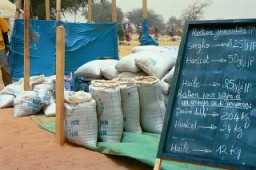
Judge Thomas Buergenthal was one of the youngest survivors of the Auschwitz and Sachsenhausen concentration camps. He immigrated to the United States at the age of 17. Judge Buergenthal devoted his life to international and human rights law. He served as chairman of the United States Holocaust Memorial Museum’s Committee on Conscience; was named the Lobingier Professor of Comparative Law and Jurisprudence at the George Washington University Law School; and served for a decade as the American judge at…
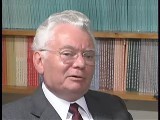
Efforts to bring the perpetrators of Nazi-era crimes to justice continue into the 21st century. Learn more about postwar trials and their legacies.
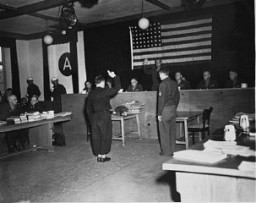
An Armenian woman and her child sit on a sidewalk next to a bundle of their possessions. Ottoman Empire, 1918–20.
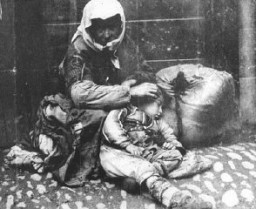
Ottoman troops guard Armenians being deported. Ottoman Empire, 1915-16.
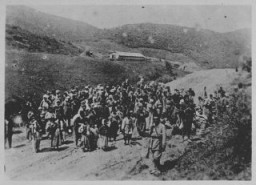
Armenian children lie in the street of an unidentified town. Photograph taken by Armin T. Wegner. Wegner served as a nurse with the German Sanitary Corps. In 1915 and 1916, Wegner traveled throughout the Ottoman Empire and documented atrocities carried out against the Armenians. [Courtesy of Sybil Stevens (daughter of Armin T. Wegner). Wegner Collection, Deutsches Literaturarchiv, Marbach & United States Holocaust Memorial Museum.]
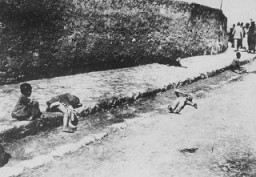
An Armenian refugee, wearing a scarf and a pack on her back. Ottoman Empire, 1918-20. Sometimes called the first genocide of the twentieth century, the Armenian genocide refers to the physical annihilation of Armenian Christian people living in the Ottoman Empire from spring 1915 through autumn 1916. There were approximately 1.5 million Armenians living in the multiethnic Ottoman Empire in 1915. At least 664,000 and possibly as many as 1.2 million died during the genocide, either in massacres and…
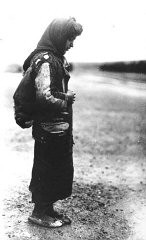
Armenian families next to makeshift tents in a refugee camp. Ottoman Empire, 1915-16.Photograph taken by Armin T. Wegner. Wegner served as a nurse with the German Sanitary Corps. In 1915 and 1916, Wegner traveled throughout the Ottoman Empire and documented atrocities carried out against the Armenians. [Courtesy of Sybil Stevens (daughter of Armin T. Wegner). Wegner Collection, Deutsches Literaturarchiv, Marbach & United States Holocaust Memorial Museum.]
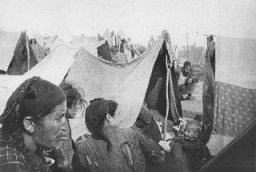
A group of Armenian refugees. 1915-20. Sometimes called the first genocide of the twentieth century, the Armenian genocide refers to the physical annihilation of Armenian Christian people living in the Ottoman Empire from spring 1915 through autumn 1916. There were approximately 1.5 million Armenians living in the multiethnic Ottoman Empire in 1915. At least 664,000 and possibly as many as 1.2 million died during the genocide, either in massacres and individual killings, or from systematic ill treatment,…
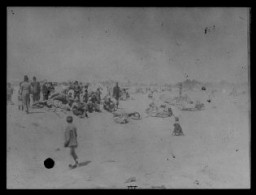
Armenian refugees in the desert. A man in the foreground lies on the ground on a layer of bedding. 1915-20.
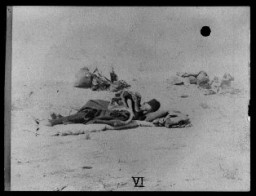
We would like to thank Crown Family Philanthropies, Abe and Ida Cooper Foundation, the Claims Conference, EVZ, and BMF for supporting the ongoing work to create content and resources for the Holocaust Encyclopedia. View the list of donor acknowledgement.